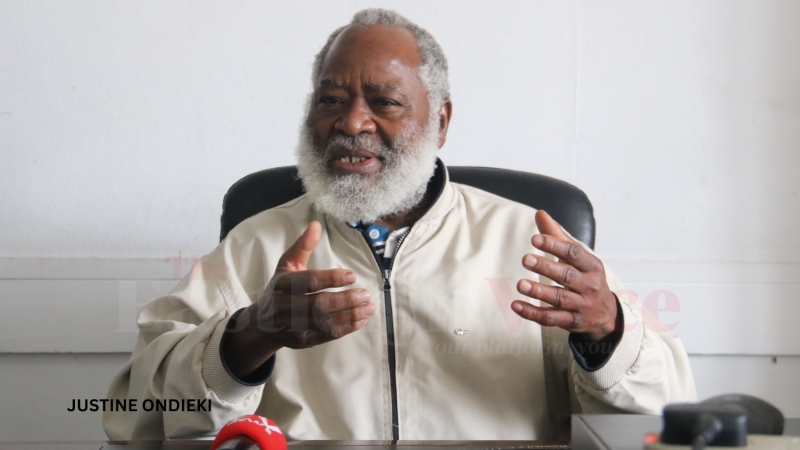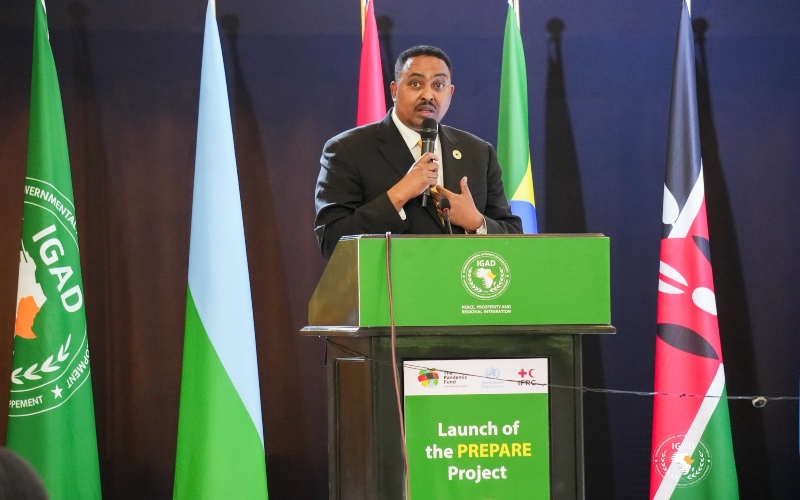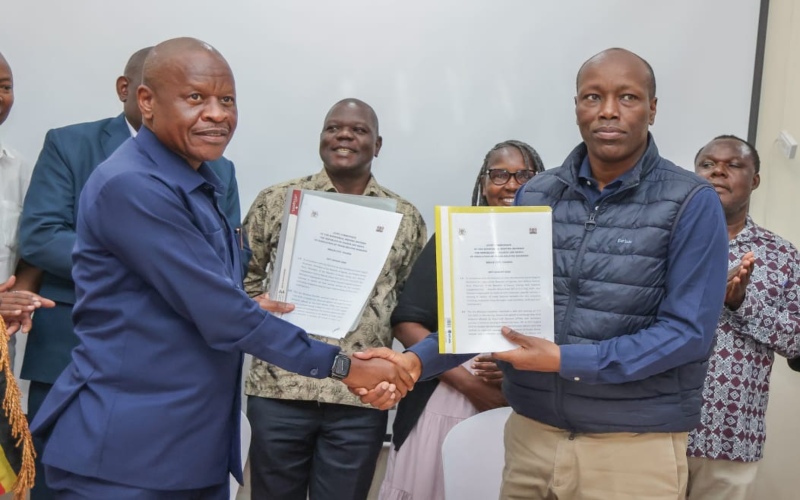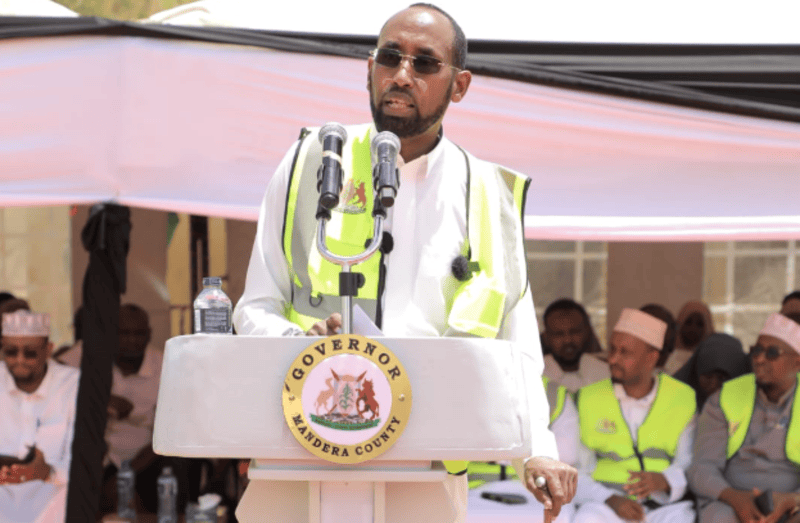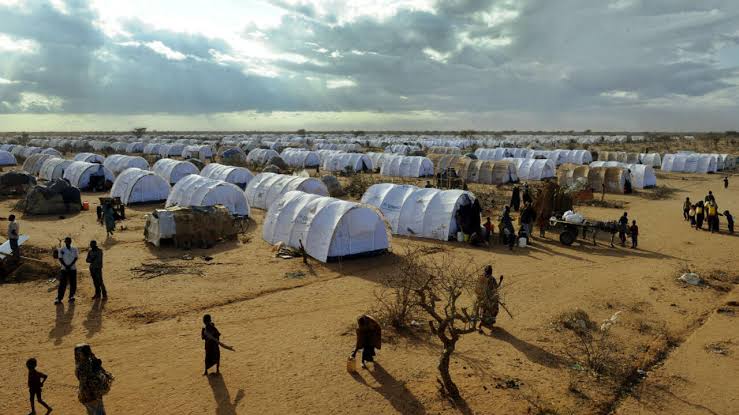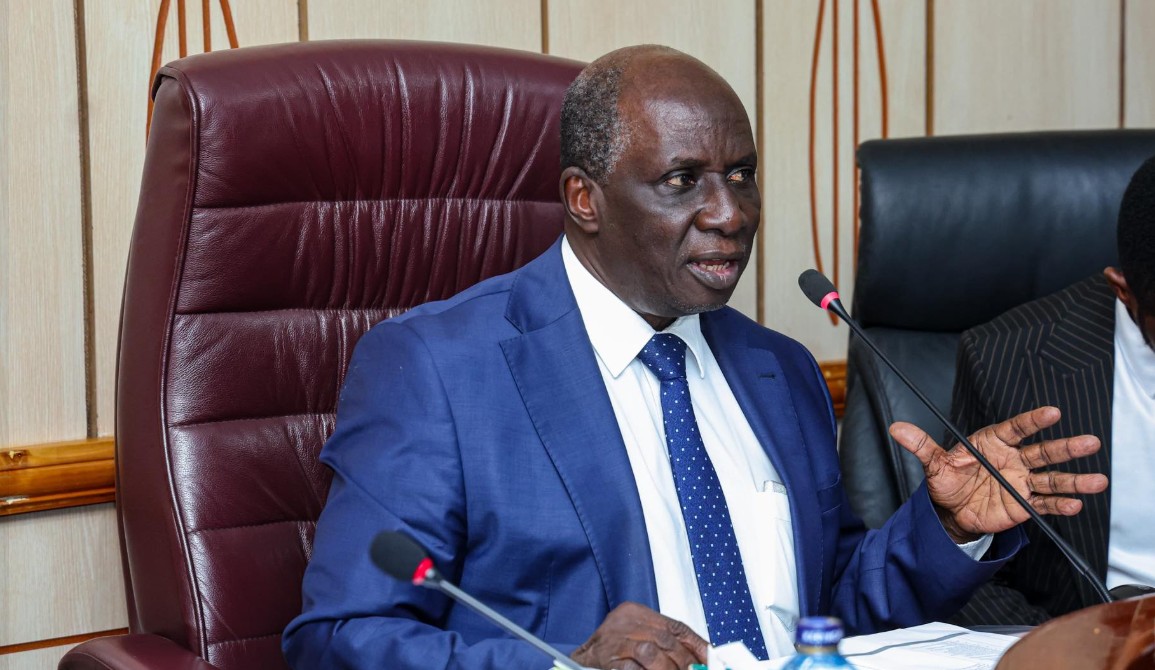FGM prevalence rate in Wajir still high as cases go unreported
Wajir Magistrate Roseline Aganyo observed that since her move to the county, no cases of FGM have been reported.
Wajir magistrate Roseline Aganyo is concerned that there are no reported Female Genital Mutilation (FGM) cases in the county even though the prevalence rate is high - at roughly 90 per cent.
Aganyo revealed this on Tuesday, during a meeting of FGM survivors and activists, as the world marked the International Day of Zero Tolerance for FGM. The meeting reflected on 10 years of anti-FGM activism in the county.
More To Read
The magistrate said that since her move to the county, no cases of FGM have been reported yet they exist.
Noting the need to find and punish the perpetrators of the illegal practice, she urged the community to work together in the fight.
Aganyo asked, "What are we saying as a community in Wajir? Is there no FGM? Are the girls safe? Are we going to continue sleeping and let our girls undergo FGM?"
She also touched on the matter of consent, noting many who undergo FGM are forced into it.
"The children don't give the consent. Someone else does that. If you are brought to me [as a perpetrator], I will not let you go. I will give you the maximum sentence," she added.
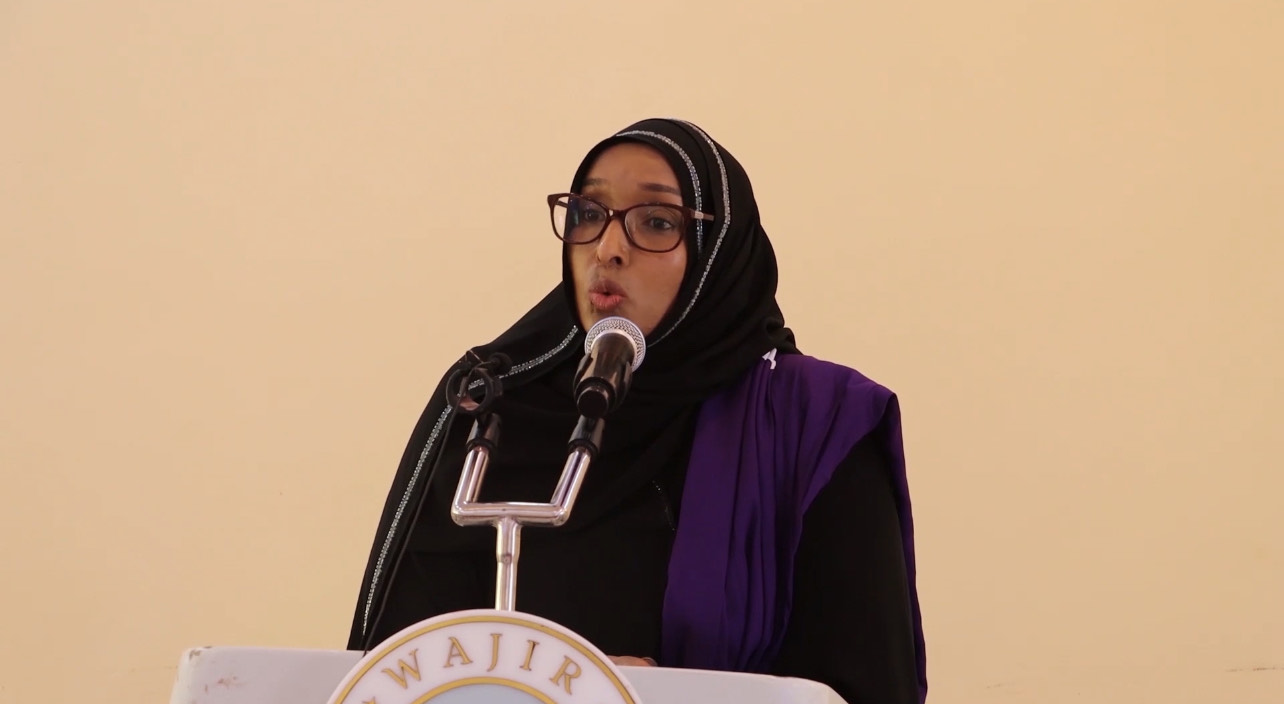 Rukia Abdinasir addresses an event in Wajir County on February 5, 2024, to mark the International Day of Zero Tolerance for FGM. (Photo: Yunis Dekow)
Rukia Abdinasir addresses an event in Wajir County on February 5, 2024, to mark the International Day of Zero Tolerance for FGM. (Photo: Yunis Dekow)
High prevalence rate
Data from the Kenya Demographic and Health Survey (KDHS) places the FGM prevalence rate countrywide at 15 per cent, with girls and women aged 15 to 49 undergoing circumcision.
Rukia Abdinasir, wife of Wajir Governor Ahmed Abdullahi, noted a high FGM prevalence rate in Wajir - about 90 per cent.
“When we say FGM rates are as high as 90 per cent, it means that out of every 100 women and girls in our county, 90 have endured this harmful practice,” she said.
Abdinasir said it is distressing that young girls are coerced into undergoing FGM to secure marriage prospects.
She expressed concern over parents and guardians taking their children from major cities like Nairobi to towns in the county to undergo the harmful practice.
She also cited sexual violence, teenage pregnancies, child marriages, dropping out of school, and substance abuse as additional challenges faced by women.
Abdinasir also noted, however, that there has been a significant shift in the fight against FGM, with more men stepping forward to support women.
“The narrative has evolved. Our educated young men now seek partners who have not been subjected to mutilation," she said, and urged women viewed as influential figures to resist the pressure to perpetuate the harmful practice.
Abdinasir urged religios leaders to continue their activism, capitalising on their influence in communities.
“Our Imams and Sheikhs serve as vital entry points to communities and can therefore play a significant role in safeguarding children from harmful practices like FGM," she said and pledged to collaborate with them to end FGM and other forms of sexual gender-based violence (SGBV).
Religious leaders in attendance echoed the sentiment, emphasising that children's rights must be protected for the sake of posterity.
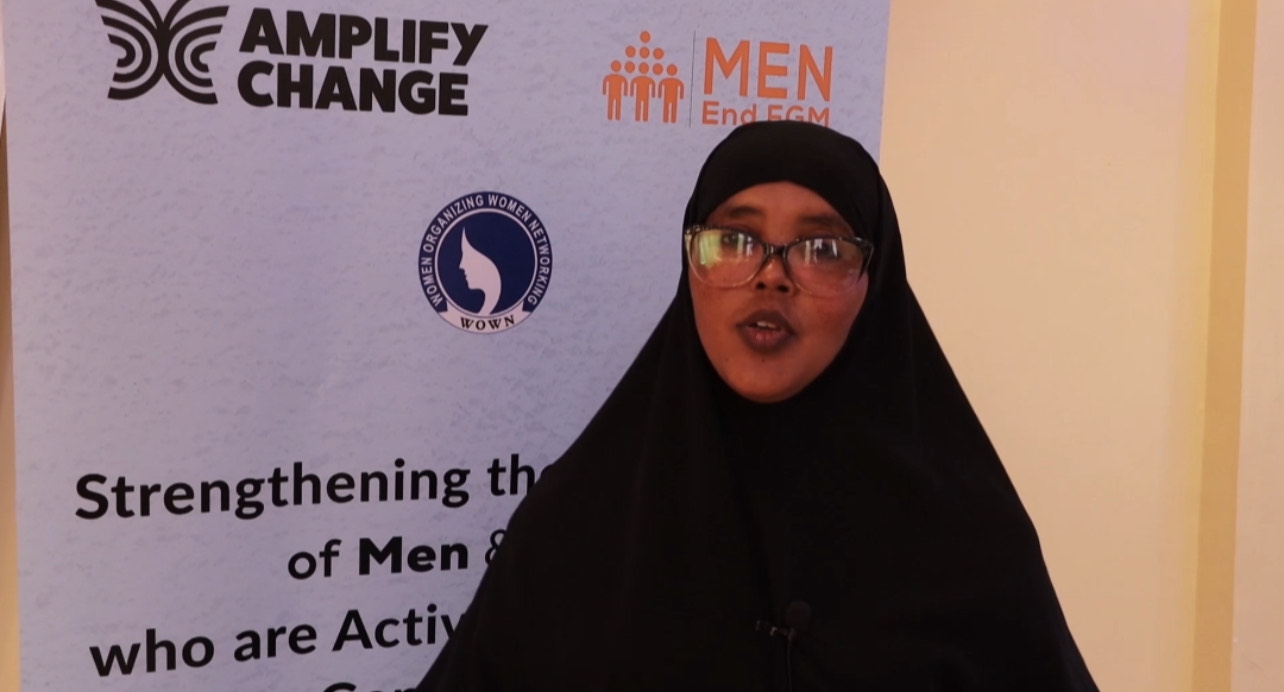 Activist Khatra Haji Mowlid, the founder and chief executive of Women Organizing Women Networking during an event in Wajir County on February 5, 2024, to mark the International Day of Zero Tolerance for FGM. (Photo: Yunis Dekow)
Activist Khatra Haji Mowlid, the founder and chief executive of Women Organizing Women Networking during an event in Wajir County on February 5, 2024, to mark the International Day of Zero Tolerance for FGM. (Photo: Yunis Dekow)
Collaboration important
In her address, activist Khatra Haji Mowlid, the founder and chief executive of Women Organizing Women Networking, a community-based organisation, noted that Wajir has made strides in the fight against the pervasive practice but it has persisted, necessitating sustained activism by survivors and human rights defenders.
Mowlid said millions of girls and women worldwide face the threat of undergoing the cut annually.
She acknowledged key challenges in the battle against the practice in the Northeastern region including resistance from the community and cultural leaders.
“Being a woman from Northeastern, it has not been an easy task fighting FGM," she said, but added that she will not relent in the fight against the vice.
Mowlid said that to combat FGM, proactive measures must be taken and all stakeholders must join forces.
“Through awareness creation and 'Know Your Rights' campaigns, we have been able to at least reduce the number of FGM cases,” she told The Eastleigh Voice.
The stakeholders collectively urged ollective efforts by county governments, the civil society, and religious leaders in combating FGM, saying their contribvutions have helped reduce prevalence.
The Female Genital Mutilation (FGM) Act criminalises FGM and imposes penalties on those found guilty of practising or aiding the practice.
In 2011, Kenya passeda law illegalising FGM and imposing harsh penalties, including a minimum fine of about Sh300,000 or three years' imprisonment, on those involved.
Top Stories Today


